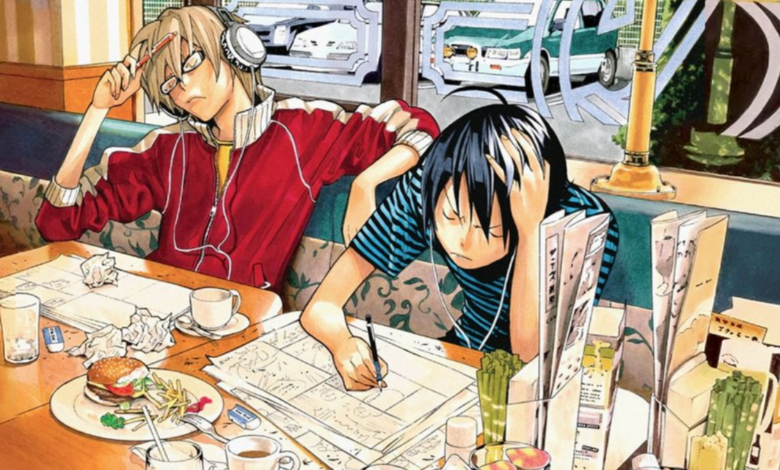AI Translations Cannot and Should Never Replace Human Creativity

Whether we like it or not, more and more companies are considering experimenting with MTL (machine translation) and AI translations. Reasons they give usually focus on how quickly they can deliver new chapters or episodes to fans, but the real motive behind shifting this creative work to machines is money. It costs far less for a company to run text through an AI translator, after all. But a move to fully AI-translated works only benefits the companies. Such a decision would only damage creators, artists, writers, readers, and fans in the long run.
Machine translations have been a pretty hot button issue the past few years as AI technology becomes more advanced. For the longest time, it was common sense that machines aren’t the most reliable translators. Who hasn’t chuckled at a profanity-laden Chinese menu or a funnily-worded sign when travelling abroad? Heck, even today, you really shouldn’t trust everything Google Translate or similar programs gives you for a variety of reasons. Innocuous words might have wild slang meanings, Internet lingo doesn’t translate well, connotations of certain words may not be conveyed, et cetera. So it’s quite strange that a tool you can’t trust to fully translate a website or a business document is something people want to see in creative works that may contain hundreds upon thousands of pages.

On one hand, I kind of get it. One of the most common arguments for machine translation that I see from fans is a distrust of localization. This is rather gauche to admit, but when I was younger (before I decided to become a translator), I used to take notice when official localizations didn’t fully match up to the original Japanese. Heck, part of why I even learned Japanese was so that I could play Japanese games directly without needing to read or wait for translations. Even today, there are some works with translations that I don’t agree with (and I’m sure there are translators and fans who dislike my work as well). However, I don’t get the blatant hostility and toxicity that some fans direct at translators. The vitriol I’ve seen targeted at certain localizers is a sentiment I never want to understand.
Now I know that some changes are necessary for reasons like character count. Other changes are a little less understandable, such as replacing entire lines of rather harmless dialogue. But a machine is not going to do better. You can even see it for yourself! (Heck, machine translators being free and easy to use are selling points. Anyone can use them; why does a company think people would pay for something they can do in two seconds for free?). If you were to copy and paste an entire game or manga’s text into something like DeepL, you’ll probably be able to see the limitations of the program yourself. These programs are fine for easy tasks like checking product description. But in stories—especially ones that rely on text for story or explanations—it’s pretty clear that AI is not the solution that people seem to think it is.

Let’s look at an actual example though. I’m going to show you a brief excerpt from Mary’s letter in Silent Hill 2:
“In my restless dreams, I see that town. Silent Hill. You promised me you’d take me there again some day. But you never did. Well, I’m alone there now… In our “special place”… Waiting for you… Waiting for you to come to see me.”
Okay, so now this is where my little experiment or test might get controversial. I’m going to take the Japanese text of the game, punch in that same part of the letter into DeepL, and then give you what the machine translated for me. This is so that you can see the difference between the languages:
“In a vague sleep, I dream of that town. Silent Hill. Someday we’ll go there together again. I promised that one day we’d go again. But because of me, it didn’t happen. I’m there alone. In that place of memories waiting for you. Waiting for you to come one day.”
Now, this test might not be the most accurate; I’m sure that if a company plans on charging for machine-translated products, it would use more sophisticated programs than DeepL and ChatGPT, which gave me the same translation as DeepL. Nonetheless, the translation is serviceable. But more than that, it gives us a good look at both the limitations of the tool and how English differs from Japanese.
Let’s look at the second part of the letter: “You promised me you’d take me there again some day” in English and “Someday we’ll go there together again.” The first is more direct and active, and implies that this is a conversation James and Mary had before. Meanwhile, the second one is vague and doesn’t sound definite. It sounds like something you and your friend might say to each other, and then you both never make concrete plans to do something. Basic writing tips would inform us that the first translation is stronger. The second translation likely stems from how Japanese lets you get away with avoiding pronouns. Indeed, in the Japanese version of the line, the first pronoun that shows up in the letter is when Mary writes “But because of me, it didn’t happen.” That lent to the more passive translation, which is something a human can avoid.
Another thing to note when comparing the two is the lack of character in the writing. Without taking into consideration the voice actress’s delivery, let’s just look at the text on its own. The inclusion of “Well” before “I’m alone there now” feels closer to natural speech. It’s a linking word that someone might actually include in real life in this particular context. The choice of translating “place of memories” as “special place” also makes more sense. James and Mary have a lot of fond memories from their trip to Silent Hill, therefore it’s special to them. It’s more natural to call such a place your “special place” but since the original Japanese text didn’t use that particular phrasing, the machine didn’t—couldn’t—think to make that choice.
Again, the DeepL translation is perfectly understandable. You can get the gist of the letter. But when playing a story-heavy game, simply “getting the gist” isn’t enough. Silent Hill 2 is the cult classic that it is today precisely because of its story, and I highly doubt that if Konami had used machine translation back then (barring the fact that technology in the late 90s and early 2000s wasn’t advanced enough for this kind of work), the game would’ve gotten the recognition or popularity it enjoys today.

It’s not just in long forms of text too. The same goes for very specific tasks such as coming up with names for things in a story. For example, Leonardo in Kekkai Sensen possesses the “All-Seeing Eyes of the Gods,” which sounds very cool. It doesn’t retain the original Japanese’s usage of the term “prosthetic eye” but in this particular case, the English name works really well. It’s snappy and it would lose a bit of its punch if you tried to fit in “prosthetic” or “artificial” before “eyes.” When I input the original Japanese name, DeepL gave me “The Righteous Eye of the Gods,” which is pretty neat, I admit.
However, this is less because DeepL is good at coming up with cool names and more because it’s getting tripped up by the kanji for “artificial eye.” 義眼 is the term for “artificial eye” and both kanji form the phrase together. However, if you simply input 義 on its own into DeepL, it gives “righteousness.” This tells me that it’s not actually recognizing “artificial eye.” Instead, it split up the term when you’re not supposed to. It can recognize “prosthetic eye” though, so I believe the “Gods’” part is confusing the machine. This is a problem that a human won’t make and while it’s true that you can train a machine to recognize these original terms, it’s hard to say if the machine is capable of inferring when a character is referring to an actual prosthetic and when they’re using a shorthand name for the All-Seeing Eyes.
Stories don’t even need fancy terminology to trip up AI. Idioms, metaphors, and colloquialisms don’t always translate well. Authors and editors aren’t infallible either. In my time translating and reading Japanese, I’ve seen all sorts of minor errors, like a discrepancy in numbers or a typo. As a human myself, I can make the distinction between what’s a mistake and what isn’t, and choose to either gently correct it in the translation or gloss over it. A machine can’t. Writing quirks exist too. A light novel I translate had two instances of a character waving to another, but the description used the same kanji for “sex appeal.” Judging by the context, I can tell that the character is not going “Yoohoo ♪” like she’s picking up boys outside the club. I made the judgment call to interpret it as a passionate wave instead. Can a machine do that? No.
There’s one more thing about Japanese and English in particular that a machine cannot figure out and it’s unique cultural values that come out in language. To fully understand a language, you need to understand the culture as well. A common sentiment I see is that English doesn’t have an equivalent to Japanese’s keigo—the polite register. That’s not true, exactly. It may not be a one-to-one equivalent, but you can translate a keigo-speaking character as someone who uses sophisticated vocabulary and proper grammar, or business English.

Rudeness can also look and sound different. In English, the easiest method to display rudeness is through words. Think Jesse from Breaking Bad. While swears and naughty words certainly exist in Japanese, English still trumps it when it comes to sheer variety and quantity. But the easiest way to tell that someone is rude in Japanese is to look at their register. How are they ending their sentences or shortening certain verbs? Things like that. I remember a stink on Twitter over Gallica’s localization in the demo of Metaphor: ReFantazio because the Japanese register was on the more casual side and the English went the snarky route. Why was there a stink? Because of these sorts of unspoken cultural expectations in the language. It really was not that big of a change and I’m saying this as someone who didn’t even like Metaphor.
Now, I’ll give DeepL credit. It can certainly tell the difference between various ways to say the same thing. I inputted “Don’t mess with me” in three different registers and got “Don’t be silly” (for the keigo), “Screw you” (for the more neutral register), and “Don’t [explicit] with me!” (for the rudest option). But what about characters like Suiseiseki from Rozen Maiden or when professionals are mad in humorous scenes in Gintama? In these two examples, characters mix keigo with a much ruder register as a joke. This is possible thanks to the unique structure of Japanese, but that doesn’t mean you can’t convey it in another tongue.
For this test, I put in a fake line written in the same manner as Suiseiseki’s speech patterns. DeepL only gave me a rude translation. That’s fair. I wouldn’t be mad if a translator decided to just keep it rude or polite. They could also decide to translate it as something like, “What, pray tell, do you think you’re doing, you numbskull?” to combine the two. Who knows. But at least you put in the time and effort to consider this dilemma. This isn’t even getting into characters who have Homestuck-like speaking quirks, like the characters in the Toaru series. Honestly, if we get into all of the “what ifs” we can be here all day. I haven’t even mentioned how machines could bungle up references to pop culture.



AI infiltrating the localization space isn’t a bogeyman for translators. Certain anime, manga, and games have come out recently that have pretty blatant machine translation, and yet it’s interesting to me that I don’t really see anyone cheer for these changes. No one praised Northern War, for example. Same thing happened when Crunchyroll seemed to push out machine-translated subtitles for The Yuzuki Family’s Four Sons back in 2023. I mean, I get it. We see the results and they’re not good. I doubt even the most thick-skinned person could point at these examples and say that this is exactly what they wanted.
A common defense of the shoddy job AI does is that the engine is still learning or the technology is still developing. The thing with AI, though, is that it’s a program. It can only really learn from what you feed it, in contrast to how a human is able to create organically. For works with a lot of set and original terms, such as Nasuverse, you might need to train the machine on the entire franchise for consistency. But what if Nasu or someone else decides to add in a new concept or term that the AI can’t break down or understand? A human might need to go in and make corrections. At that point, though, just hire the human.
It’s a lot more work to fix AI than to simply translate it by yourself and guess what? Companies can pay less for more work with the excuse that the translations are already done. When it comes to longer stories, AI really jumbles things up to the point that it can take far more time for a translator fix it than to simply translate it themself. That’s not even getting into the environmental impact and ethics of programs like ChatGPT. It takes a person’s hard work, chops it up, and then spits it out. Where’s the guarantee that the person whose work the program was trained on even gave permission? The fruits of my labor as writer and translator are not so that a company can put them into machines, churn out garbage, and then edge me out.

Humans have been telling each other stories for centuries now through mediums like songs, poems, novels, and more. Art is something that comes from the mind and soul; it’s not something that a machine can replicate, no matter how many things you train it on. A mindset that a non-creative might fall into is that they don’t know how to make things good. Perhaps this is a side effect of this horrible social media-obsessed, clout-chasing era we live in, that things need to be of good quality in order to be valid. But that’s not true.
Look at ONE. His writing is phenomenal, of course. His art was kind of infamous though. While he understands basics like anatomy and such, he has a rather quirky style that’s not conventionally pretty. However, you can still feel the passion and emotion and whatnot in the characters’ expressions and such, despite the simplicity of the art. Art doesn’t need to be good to make you feel something. Someone’s ridiculous doodle of their co-worker’s expression in response to a 9-11 joke invoked more emotions than me than any polished AI “art” that appeared on my TL.
Translation is an art in and of itself, in my opinion. Yes, we have to remain faithful to the original text, but our interpretation of scenes and understanding of the characters or what the author is going for help us to decide things like word choice or sentence structure. But even if you don’t subscribe to this way of thinking, I feel like trying to say AI can completely overhaul this creative process is disrespectful on so many levels.
It disrespects the creator, no matter how much effort went into the original work. Imagine you put your blood, tears, and sweat—your whole soul—into something that you want to share with the world, and companies and readers believe that a heartless machine is capable of translating your message. Not only that, but it steals it and mixes it with other people’s to churn out later, without your permission or input. AI disrespects the fans as well, especially when companies are trying to gouge you of your hard-earned money with lazily translated content.
If a company won’t bother to put in the time and money to get a work a proper translation, then why should you bother wasting your time and money on it? That’s the impression I tend to get when I see companies prioritize profit and fall back on MTL. Now more than ever is when we should be uplifting human creativity, and there is simply no room for AI in this space if doing so threatens integrity and livelihood.




